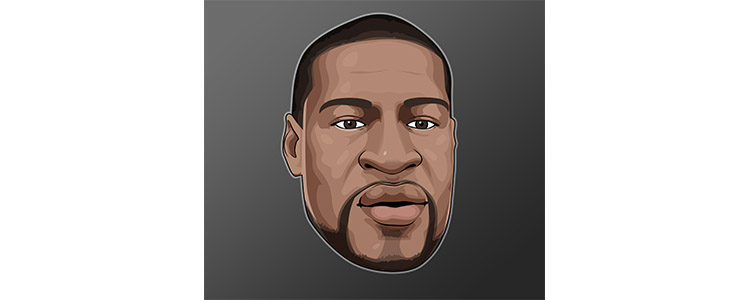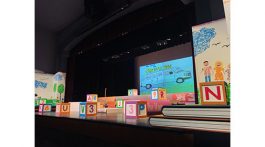This past week, I, like many of you, jumped in on #BlackoutTuesday. The injustice of George Floyd’s murder plagued me. I took the week to listen, think, pray, read, and ponder. Now, I have some thoughts. As I mentioned in my last post, my white voice is probably one of the last voices that should be listened to. After a week of study and prayer, I’m even more convinced of that. But, I feel compelled to speak anyway. I’m more and more convinced that, as with all important issues, ineloquently opening the door to conversation is better than silence.

Has everyone else noticed that there are a striking number of parallels between the COVID-19 pandemic and the issue of racism in America?
- The brightest minds among us can’t figure out how to eradicate it.
- You can’t see it; but you can see the symptoms. In some, the symptoms are obvious. In others, not so much.
- It seems to target some subgroups of the population more than others.
- Many people are walking around not realizing they are infected.
- It has caused an immeasurable loss of lives, jobs, and opportunities.
- Some people choose to carry on their lives as if it didn’t exist; and, those people put others in harm’s way.
- People are dealing with it in a variety of ways. Some ignore it. Some are overly cautious. Many are mad at others for not seeing things their way.
- As with any problem we don’t fully understand how to fix, it has created a lot of personal angst and social unrest.
Perhaps I’m supposed to learn something from all of this. Perhaps society is supposed to learn something from all of this.
COVID-19
When the world shut down, the Wood family shut down. As parents of an immunocompromised child, we were more sensitive to the virus than we normally would’ve been. Like many of you, we lived life on edge these past couple of months. We took great care to avoid unnecessary risks. When we made our infrequent trips out of the house, public conversations with strangers were far more stressful than they ever had been…especially on the occasions when I ran into people who chose not to wear a mask.
“Are they judging me for wearing a mask?”
“Are they going to try to shake my hand?”
“How do I handle this well?”
I knew that, statistically speaking, not many people were infected with the virus and even fewer were at risk of death. But, I didn’t have a reliable way to know who was. So, I lived nervously in public and fearful in private.
Racism
Like many of you, I’ve taken a good bit of time this year to learn more about black history. I’ve read a lot and learned a lot. Among other things, I learned that a surprising number of diverse Americans have lived the entirety of their lives in the same “on edge” fashion that I lived for the last couple of pandemic months. These Americans know that, statistically speaking, a minority of white people are bold, persecuting racists. They know that, statistically speaking, a minority of police officers (or board members…or customer service reps…or [insert name of any power-wielding group here]) are bold, persecuting racists. But, there isn’t a good way to know who is and who isn’t. Also, many white people are walking around infected with the disease of racism and don’t realize it. So, many non-white Americans live nervously in public and fearful in private. For their entire lives.
That thought absolutely grieves me. I would not be where I am today–in relationships or business or religion or general life fulfillment–without a societal comfort level that emboldened me to take risks. I think the same is true for many of my fellow white Americans. Actually, I know it is…because our entire economy stalled when a colorblind pandemic injected uncertainty, nervousness, and fear into society. The ability to take risk–with a safety net of justice–is fundamental to individual advancement. How many innovations, inventions, and ideas has our society missed out on because racism has eroded a safety net of justice for many Americans? My guess is: countless.
A path forward
Our church is in the midst of a study of Deuteronomy right now. This week, we’re in Deuteronomy 26.
The gist of Deuteronomy 26 is this: Israelites are to give out of the firstfruits of what they have to “the Levite, the sojourner, the fatherless, and the widow” (vs. 13). But, they aren’t simply to give. There’s to be a bit of ceremony to it. They are to recite a few words to remind them of a very important truth about their very important history: that they were once the ones who were treated harshly and unjustly. They were once the outcast. They were once the sojourner. They were once the captive.
I think the solution to the two problems—COVID & racism—is an intriguing dichotomy. To stop the spread of the virus, it took unprecedented quarantines and social distancing. To stop the spread of racism, I think it’s going to take the opposite: unprecedented, intentional, diversified togetherness. But, I think those of us who’ve lived with more privilege (or opportunity…or comfort…or ability to take risks…or whatever you want to call it) should accept the biblical call of giving to coincide with intentional togetherness. In other words, I think it’s going to take stodgy white Christians like me giving the firstfruits of what we have—our time, our influence, our money, our expertise, and our love—to those who are being treated harshly and unjustly.
Just to be clear, I don’t think any nationality in America has even the slightest need for white people in to come to its rescue in a “savior” type of way. It’s just that no one group can change society on its own…until we are all one group. We need to work together to create a safety net of justice.
We are all created in the image of God. Same origin. Same potential. I think there is an ever-present call for Christians to reach out in an empathetic way to any group that is being marginalized by society. Of all people, we Christians should share the deepest empathy. My religion tells me this: I was once treated harshly and unjustly. I was once the outcast. I was once the sojourner. I was once the captive. And now, I’m free. If I don’t carry within me a deep desire to actively share that sense of freedom with the marginalized of the world–let alone with the marginalized of America–then, at best I’m a pretty terrible Christian.
That’s all a very wordy way of saying this: I feel that Deuteronomy 26 is as relevant to me, a Christian, today as it was to the Israelites back then. Whenever I see any one person or any group of people living life in a state of nervous apprehension of unjust punishment, it should compel me to give of my “firstfruits” to help eradicate that state–just like Jesus did.
Conversation
As I mentioned, this post is simply an ineloquent (and overly-wordy) way of opening the door to a conversation. There’s virtually no chance I’m going to say things right or do things right as I try to move forward. But, I have to start somewhere. I think we all do. The issue is too important.




No Comment